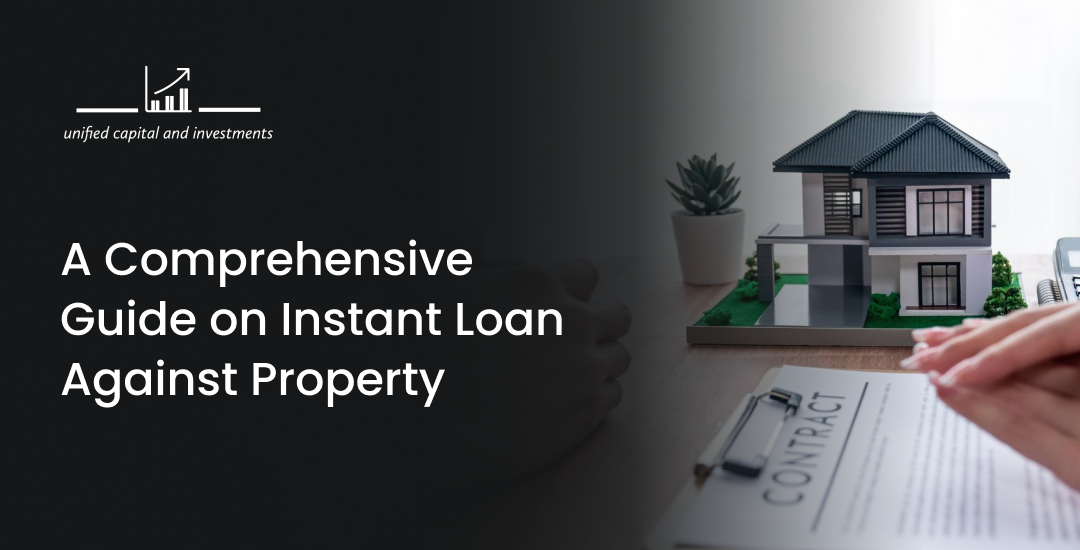About Bizwheel
The main component of a healthy environment for self esteem is that it needs be nurturing. It should provide unconditional warmth.

In 2024, one of the financial goods familiar to individuals and businesses is a loan referred to as a loan against property. As a result, it assists in using real estate as security to secure finances. However, many people take advantage of such loans to boost their business. Additionally, pay for their medical bills when they are sick unexpectedly, or even pursue higher learning without having money. However, this comprehensive guide will help you to know about the nuances of an Instant loan against property. Learn about its benefits, eligibility criteria, loan application process, and potential risks.
A Brief Description of Loan Against Property Loan
A Loan Against Property is a secured form of lending that involves borrowers presenting houses or business premises as security against their borrowing facility. When granting such advances, financiers utilize 60% to 70% of the real estate’s price while determining loan size. Such forms of loans generally last for about fifteen to twenty years. Hence giving those in need a sufficiently long time frame within which to repay them.
Key Benefits of Loan Against Property
Lower Interest Rates: LAP, a secured loan, usually has lower interest rates than unsecured loans. However, these types of personal loans; are sought out by borrowers who need large amounts of money lent to them at cheap rates.
Large Loan Amount: Large-scale financial requirements can be met by accessing substantial funds through LAPs. For instance, if someone needs to expand their business and does not have the necessary amount. So, they could borrow against their property’s value using LAPs which allow them access to up to 70% of its market price. Furthermore, the reason is substantial medical bills not in the insurance terms and conditions. However, it might be beneficial as it can help solve these issues quickly without long borrowing periods. In addition, expensive interest rates are charged as seen in many other lending institutions.
Flexible Repayment Options: Lenders provide flexible repayment choices to allow borrowers to pick repayment duration. So, they will choose the best plan that will suit their financial status. Lengthier repayment periods will decrease the monthly EMI obligation, hence easing the repaying process.
Retain Ownership of Property: Although borrowers agree to secure the loan with the property, they still own it and can use it themselves or as a tenant for the loan's term.
Eligibility Criteria: There are various considerations that lenders take into consideration before giving out loans against property, though different lenders have their criteria that may include:
Generally, people who borrow are those of the age ranging from 21 to 65.
Ensure the borrower can repay the loan. However, they require an unchangeable, consistent, and adequate source of income. Additionally, the individuals vary from full-time employees to self-employed entrepreneurs.
You can utilize both residential and commercial properties as collateral. Only completed buildings with clear ownership rights should serve as collateral for the loan.
Having a good credit score increases the likelihood of loan approval, and can also result in lower interest rates. However, it is essential for loan amounts as it reflects positively on repayment ability on average balances. Moreover, over this period if your monthly expenses fall within that budget.
Application Process: For the application process for a Loan Against Property, you need to follow these guidelines step-by-step:
If you want a loan, it is good if you go through different companies offering loans to weigh their interest rates, repayment plans, eligibility criteria, and loan policies.
Get together the right documents which include one’s I.D., address, income, property, and bank statements after which you should ensure they are all current and correct.
Submit the loan application form along with the required documents to the chosen lender. This can often be done online or at a branch office.
The lender will value the property to establish its market worth, which will heavily influence the approval of the loan amount.
Once you submit all necessary documents and property valuation, they will approve the loan and transfer the money to the borrower's account.
The time taken for this process varies between several days and about two weeks due to the lender’s procedures.
Risks and Considerations: While a Loan Against Property offers several benefits, it also comes with certain risks:
Pay your loan to avoid the moneylender taking the pledged asset.
Changes in the interest rate affect the investment planning which can cause monthly EMI payments to change for a loan with a variable interest rate.
Because there is a need for property valuations and verification of documents, the approval process takes longer for secured loans than it does for unsecured ones.
Conclusion
Any individual or business seeking a lot of money at reasonable interest rates for various purposes might find property-backed credit satisfactory. One advantage is that such loans can be provided at lower interest rates than unsecured credits. Besides, this type could avail a large sum of money and the repayment terms might be quite flexible at times. There are however several things that an applicant needs to know about it which include who qualifies.
Leave a comment
All fields marked with an asterisk (*) are required